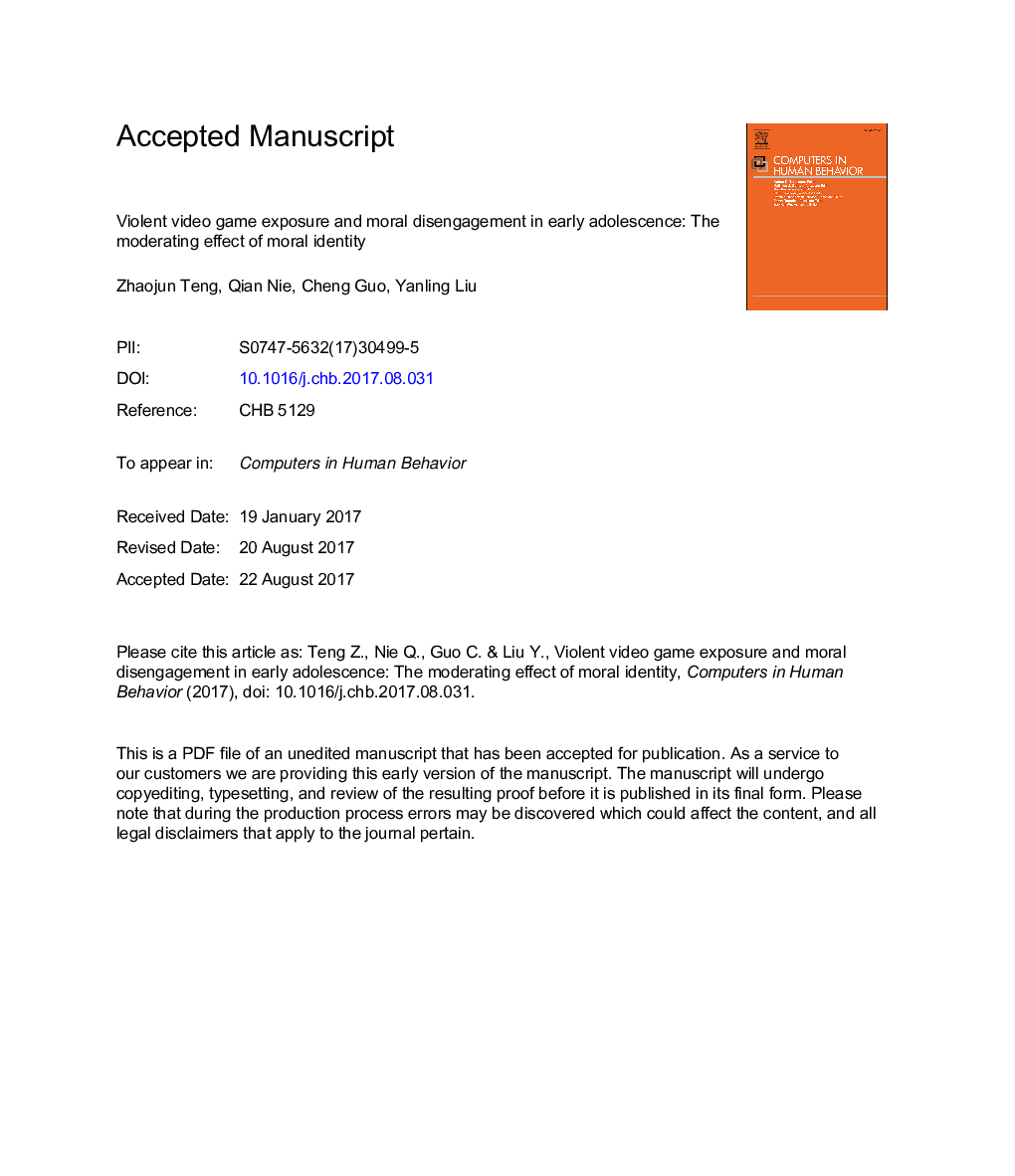| Article ID | Journal | Published Year | Pages | File Type |
|---|---|---|---|---|
| 4937026 | Computers in Human Behavior | 2017 | 44 Pages |
Abstract
Previous research has suggested that violent video game exposure might induce moral disengagement; however, few studies have examined the underlying mechanisms. Based on the social cognitive model of morality, we examined the interaction between how violent video game exposure and moral identity predict moral disengagement. Participants comprised 761 adolescents (53% boys) in the seventh grade from five Chinese junior middle schools (Mage = 13.17, SD = 0.65 years). The correlation analysis revealed that violent video game exposure was positively related to moral disengagement and negatively related to moral identity, and moral identity was negatively correlated with moral disengagement. When controlling for gender and age, violent video game exposure interacted with moral identity to predict moral disengagement. For adolescents with a higher moral identity, moral disengagement decreased following less exposure to violent video games; however, no significant decrease occurred in adolescents with a lower moral identity. The results revealed a moderating effect of moral identity between violent video game exposure and moral disengagement in early adolescence. This supported the social cognitive model of morality that proposes that situational variables can interact with moral identity to predict moral outcomes in early adolescence.
Related Topics
Physical Sciences and Engineering
Computer Science
Computer Science Applications
Authors
Zhaojun Teng, Qian Nie, Cheng Guo, Yanling Liu,
